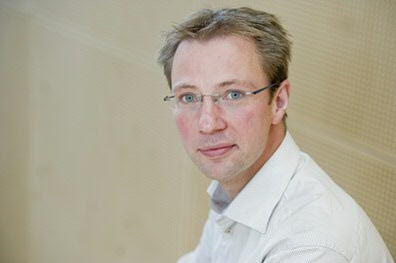Marijn Molema appointed Professor by Special Appointment in Regional Vitality and Dynamics
As of 1 September, dr. A.M. (Marijn) Molema will be appointed Professor by Special Appointment in Regional Vitality and Dynamics at the Faculty of Arts of the University of Groningen (UG). The chair was established in collaboration with the independent knowledge institute and the 'Fries Sociale Planbureau' (FSP) foundation. The chair will be part of the Economic and Social History chair group of the History programme.

The teaching and research of dr. Molema analyses regional responses to social transitions from 1870. Since then, industrialisation, modernisation, and globalisation have fundamentally changed society. Central to his research is the way in which the province of Fryslân and its neighboring regions in the north of the Netherlands and northwestern Germany took account of these global changes.
Comparing areas with each other provides more insight into the common and unique factors that explain regional development. This increases the palette of institutional differences, so that more insight is gained into organizational factors of regional development. In addition, the research will provide new insights into the relevant developments in the field.
About Marijn Molema
Dr. Marijn Molema (1982) investigates the history of regional development, prosperity, and well-being within areas larger than a municipality, but smaller than the country or countries in which the region is located. The regional perspective has a rich tradition in economic and social history. The economics, sociology, geography, and political science provide both conceptual and theoretical vigour. Molema is the author of Regional Economic Development and History (October 2019, with Sara Svensson), Migrationsgeschichte in Nordwestdeutschland und den nördlichen Niederlanden. Quellen, Handreichungen und Beispiele zur grenzübergreifenden Forschung (2019, with Meindert Schroor), and is the founder and editor of the Benelux-German Borderlands Histories Series in collaboration with the University of Münster and the Public History Series in collaboration with the publisher ‘Het Nieuwe Kanaal’. He is also a member of the Scientific Advisory Board of the Dutch-Flemish research school NW Posthumus Institute and of the historical network North-North and North-West Germany.
About the University of Groningen and the Economic and Social History chair group
For a few decades, a special chair at the Faculty of Arts has secured historical research into rural regions at the University of Groningen. This chair was established in 1988 by the Foundation for Higher Agricultural Education under the name ‘Economic and Social History of City and Countryside’. In 2000 a shift in emphasis followed to 'Regional history, in particular of the change processes in the agricultural society of the northern Netherlands'. This proposal involves reactivating the special chair, in which the independent knowledge institute and the 'Fries Sociale Planbureau' (FSP) foundation act as a partner. The FSP was founded in 2015 and has since collected an interesting amount of data and insights. The synergy between FSP and the University of Groningen lies in an analytical deepening of these data. Long-term trends can be described and explained using scientific concepts.
More news
-
14 February 2026
Tumor gone, but where are the words?
-
19 January 2026
Digitization can leave disadvantaged citizens in the lurch
